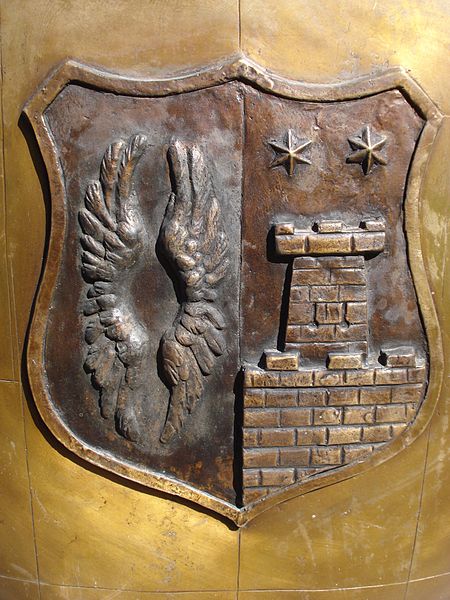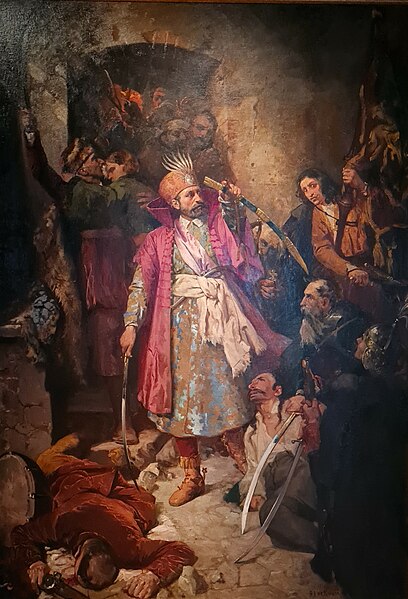The House of Zrinski or Zrínyi was a Croatian-Hungarian noble family, a cadet branch of the Croatian noble tribe of Šubić, influential during the period in history marked by the Ottoman wars in Europe in the Kingdom of Croatia's union with the Kingdom of Hungary and in the later Kingdom of Croatia as a part of the Habsburg monarchy. Notable members of this family were Bans of Croatia, considered national heroes in both Croatia and Hungary, and were particularly celebrated during the period of Romanticism, a movement which was called Zrinijada in Croatia.
Zrinski family
Ruins of Zrin Castle, Croatia.
Portrait of Nikola IV Zrinski by Oton Iveković.
Zrin Castle, once a seat of the family on mainland
Croatian nobility was a privileged social class in Croatia during the Antiquity and Medieval periods of the country's history. Noble families in the Kingdom of Croatia included high ranking populates from Slavonia, Dalmatia, Istria, and Republic of Ragusa. Members belonged to an elite social hierarchy, normally placed immediately behind blood royalty, that possessed considerably more privileges or eminence than most other classes in a society. Membership thereof typically was often hereditary. Historically, membership in the nobility and the prerogatives thereof have been regulated or acknowledged by the monarch. Acquisition of sufficient power, wealth, military prowess or royal favour enabled commoners to ascend into the nobility. The country's royalty was heavily influenced by France's nobility resulting members of the Royal Courts to assume French titles and practices during French occupation. The controversial assumption of French practices contributed to wide spread political and social elitism among the nobles and monarch. The nobility regarded the peasant class as an unseen and irrelevant substrata of people which lead to high causality revolts and beheadings as well as sporadic periods of intense domestic violence.

Coat of Arms with two gryphons on the Draskovic Family's personal residence at Trakoscan Castle (18th century?)
Duke Muncimir's Latin charter from 892 (transcript, 18th century?): divino munere Croatorum dux ("By God's grace, Duke of the Croats").
Stjepan Patačić, protonotary of the Kingdom of Slavonia and Deputy Ban (Viceroy)
Count Josip Kazimir Drašković, general of the Habsburg monarchy imperial army







